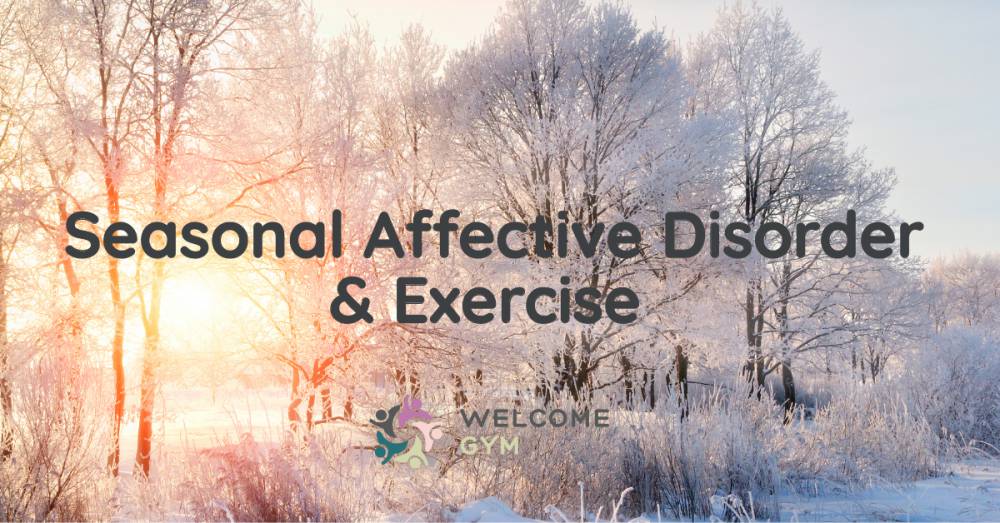Seasonal Affective Disorder or SAD is a type of depression that comes and goes with the change in season and is usually related to the short days, darkness and cold of winter. In its severest form, it affects up to 2% of the population, especially women and young people, but up to 20% of people experience it to some extent. It’s also more common in latitudes far north or south of the equator, where day lengths vary most with the seasons.
It’s thought that lack of sunlight in winter inhibits the production of serotonin, the hormone that affects our appetite and mood, in the part of the brain called the hypothalamus. It also seems to increase levels of melatonin, the hormone that makes us feel sleepy, and it may also disrupt the circadian rhythm associated with our bodies’ internal clock.
Symptoms of SAD can include:-
• Unexplainable low mood
• Loss of interest in life, hobbies and normal activities
• Irritability and bad temper
• Feeling unusually lethargic and tired
• Sleeping for longer than normal and reluctance to get up in the morning
• Craving sweet and starchy foods and eating too much, leading to weight gain.
• Feelings of despair and worthlessness
• Difficulty in concentrating
• Unexplained aches and pains
Obviously, if these symptoms are severe, you could be suffering from clinical depression, so you should consult your doctor. However, most of us feel less cheerful and positive in winter, when grey skies, cold winds and torrential rain seem to be the norm and it’s dark when you leave home in the morning and when you return from work in the late afternoon. And there are things you can do without resorting to medication to reduce the winter blues and make the months between November and February more bearable: -
- Spend as much time out of doors in nature as possible. Weather permitting, wrap up warm and take your coffee out into the garden or take a lunchtime walk in the park. Get more light into your home by drawing back curtains and cutting back any vegetation in the garden that blocks your windows. Or try sitting or working near a light therapy box, which emits full-spectrum light that emulates sunlight, for an hour each morning; this is believed to be a safe and effective method of reducing seasonal affective disorder.
- If it’s a sunny day and you’re not at work, go for a brisk country walk or a cycle ride. You’ll get a dose of Vitamin D, which your body can make from exposure to sunlight, although you may need to take a supplement in winter; it’s essential for strong bones and teeth. The natural light will also boost your serotonin levels. Embrace the lovely things about winter – the bare outlines of trees and dramatic skies, particularly at daybreak and dusk, making a snowman, sledging with the kids or having a snowball fight.
- Get out into the garden – a bout of strenuous digging, raking, sweeping and getting your hands dirty is a proven way of connecting with the earth and improving your mood. Planting some tulips, daffodils or other bulbs, whether in the garden or in pots for an indoor display, is an investment in the future and will help you look forward to the spring and the brighter days ahead.
- Be kind to yourself. After a brisk walk in the frosty air, enjoy just snuggling down in front of a cosy fire with candles, a warm blanket, some hot buttered crumpets, a mug of tea and your favourite box set (a taste of the “hygge” lifestyle that Scandinavians enjoy). After all, the Danish are often top of the list of the world’s happiest countries, despite their famously miserable winters. Or why not invite some friends or your family round for a proper afternoon tea, a casual supper or Sunday lunch? Cooking together or just chatting with other people will lift your mood and banish the wintertime blues.
- Set yourself a fitness goal and visit the gym regularly. Enlist the help of a personal trainer or a member of the fitness team to help you achieve measurable targets, maybe losing some excess weight, increasing your strength or tackling that “tired all the time” feeling through exercise. Or join a few fitness classes -you’ll burn some calories, make some friends and cheer yourself up.
Remember, winter will soon pass. Before you know it, the days will start lengthening again, the first tentative shoots of spring will arrive and those SAD feelings will eventually disappear.
![]()
![]()
![]() blog
blog![]()
![]()
![]() blog
blog